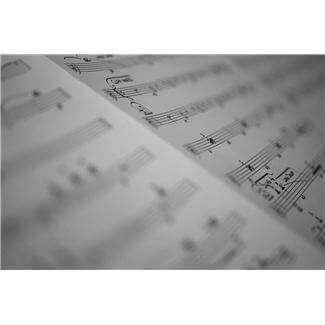Sound therapy or music therapy has many healthy benefits and is often used in conjunction with other therapies. According to the American Music Therapy Association (which was founded in 1998), Music Therapy is a current health profession that uses music therapeutically to address physical, emotional, cognitive, and social needs. It is also used to help individuals with communication, especially if they have a difficult time expressing themselves emotionally. Scientific studies have also shown that Music / Sound Therapy reduces depression and anxiety. It can also improve your mood and the effectiveness of physical rehabilitation. The Music Therapy of today seems most similar to the music therapy that began right after World War I. Local musicians traveled to hospitals to play music for the soldiers who had suffered emotional and physical trauma.
For Healing
Music has been used as a healing force for centuries. Music or sound therapy dates back to biblical times when David played the harp to get rid of a bad spirit for King Saul. Even as early as 400 B.C., Hippocrates, known as The Father of Medicine, played music for his patients who were mentally ill to help them. Aristotle, the Greek Philosopher, described music as a force that could purify one’s emotions. As far back as the 13th century, many Arab hospitals had rooms known as “music” rooms to assist and benefit their patients. Music therapy was also performed by the Native American medicine men. The Native Americans were known for their chants and dances, which were used for various types of healing.
Sound Therapy Affects Us
Sound is used in so many ways, including medicine in its use of ultrasounds and lithotripsy. There are even sound products on the market you can purchase that are designed specifically for therapeutic use.
During my research, I ran across a very interesting video clip done by Julian Treasure. He explains how sound affects us in the following four ways:
- Physiological – loud or intrusive sounds increase our production of cortisol, which is known as the fight or flight hormone, which also leads to increased breathing and heart rate.
- Psychological – think of how you feel when a birds sings or you hear a water fall. How about when you hear a siren or a horn. Even silence effects us. Birds singing and ocean waves emit sound at roughly 12 cycles per minute which is approximately the cycle of normal breathing during sleep. I guess finding these sounds relaxing is more than just a coincidence.
- Cognitively – people who work in an open office space are found to be one-third less productive than workers in a quieter workplace. If you work in an open office space and feel less productive, buy a headset or earplugs and watch your productivity rise.
- Behaviorally – many retail stores use sounds to enhance the buyers experience. Research shows that the right choice of music can increase your sales.
Sound and Meditation

Meditation is thought of as discovering your body’s own intelligence. According to the Meditation Society of America, Meditation is a process that leads to a state of consciousness that brings clarity and happiness to an individual. Meditation is widely used by many people as a form of relaxation or spiritual enlightenment. The three most common meditation sounds are “ah”, “om”, and “hue.
Ah is the sound for peace or compassion for yourself and for others.
Om represents the name of God and is usually chanted at the beginning or end of meditation.
Hu is the sound of all sounds. Often heard by all of us through the sounds of blowing leaves, bird songs, and ocean waves. It represents love, understanding, and truth. I find it interesting that ‘Hu,” which represents love, understanding, and truth, is heard by many of us daily through the sounds of nature. Maybe someone wants us to remember them. I also can’t help but find it interesting that the words “Amen” and “Alleluia” contain the above sounds.
Whether you meditate or use a sound therapy device, like Wholetones, I believe all of us are affected by music or sound. Think of how proud you feel when the National Anthem is played at the opening of a ball game. I believe music or sound is one of the most influential pieces of healing art we have. It also makes a great universal language. Living my life without it is unimaginable. Each day begins with me using the SOQI Bed while listening to the relaxing sound therapy it provides. Enjoying the bird songs and ocean waves. I am also sure that I am not alone in having those special songs we hear that take us back to a special memory in time.

